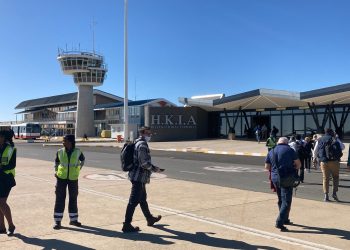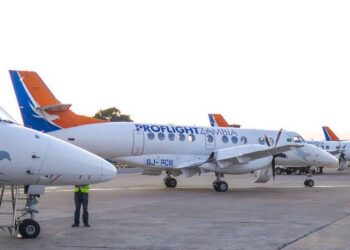
The Federation of Namibian Tourism Associations (FENATA) has raised alarm over the lack of awareness and acknowledgement of the tourism industry’s profound financial and societal contributions to the country.
Citing the absence of comprehensive national statistics on tourism, FENATA has commissioned a socioeconomic impact study in collaboration with economic experts at Simonis Storm.
The resulting 15-page report, drafted with inputs from the private tourism sector, sheds light on the industry’s extensive impact and presents crucial recommendations.
One of the key findings of the report underscores the inadequacy of current national accounting practices, which classify tourism primarily under “accommodation and restaurants.”
The report notes that this narrow categorisation fails to account for the full spectrum of tourism-related services, including transportation, logistics, and rural tourism activities, as well as the industry’s substantial role in the development of conservancies. Â
Simonis Storm’s Managing Director Bruce Hansen emphasised the global significance of tourism, stating “tourism has become the world’s third-largest export industry, ahead of food and automotive products. In recent years, international tourism has surged, accounting for 7% of the world’s total exports in 2016.”
Hansen stressed the need for accurate data to assess Namibia’s tourism accurately, underscoring its role as a foundation for informed decision-making, effective policies, and transparent governance.
The Chairman of FENATA, Martin Webb-Bowen, believes the absence of comprehensive data hampers decision-makers’ ability to prioritise the tourism sector in land access and natural resource policies.
“It is key that we, as Namibians, ensure that tourism is recognised for its role in guaranteeing a future for the country and its people, as this is an industry with arguably the largest real potential for sustainability,” he stated.
FENATA hopes that this study, in conjunction with the forthcoming 6th edition of the Namibian Tourism Satellite Account later this year, will provide the essential data needed to underscore tourism’s value in Namibia and ensure sustainable utilisation of the country’s pristine areas for tourism.
This came when in early 2020, the Bank of Namibia (BON) issued a report addressing concerns about foreign “leakage” within the tourism industry.
BoN concluded that illegal leakages were primarily associated with essential international trade partners, essential for the industry’s bulk business.
Furthermore, BoN recommended that the government increase support for the tourism industry to bolster economic growth, job creation, foreign exchange earnings, and tax revenue.
“The BoN also called for higher priority in budgetary allocations for marketing Namibia as a unique tourist destination. Recognising the importance of branding and global marketing, the BoN stressed the need for continuous international marketing campaigns to complement the efforts of individual enterprises and global players,” the report reveals.
Additionally, the BoN recommended the development of policies promoting inclusivity and industry participation.
“Lowering the entry barriers and reducing excessive regulations were seen as crucial steps towards wider involvement. Identifying new source markets and raising awareness of Namibian tourism products were also suggested to benefit both the industry and the broader community.”
However, the report highlights that the BoN’s recommendations were made just before the onset of the Covid-19 pandemic in 2020 and might not have received the attention they deserved.
It is hoped that the FENATA-Simonis Storm socioeconomic impact report, the Bank of Namibia’s 2020 report on tourism, and the forthcoming 6th edition of the Namibian Tourism Satellite Account will provide the evidence and data needed to convince Namibian decision-makers of the vital importance of tourism as a key economic pillar.
The duo note that the tourism industry significantly contributes to GDP and employment, deserving the recognition and support necessary for its continued sustainable growth and a flourishing tourism environment for generations to come.
Â
Â
Â











